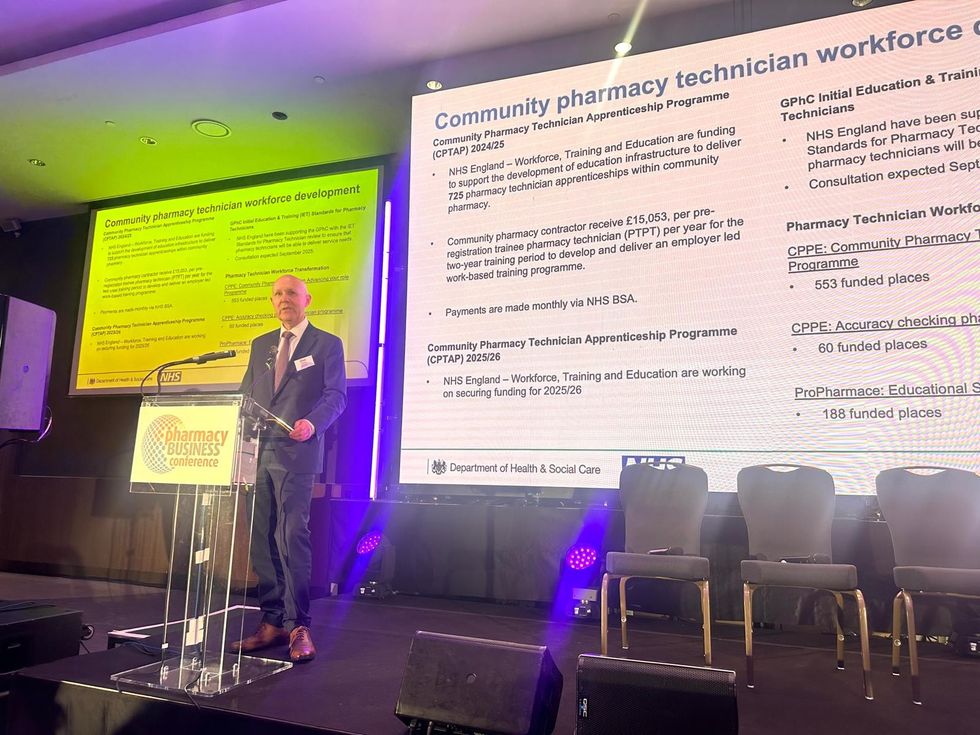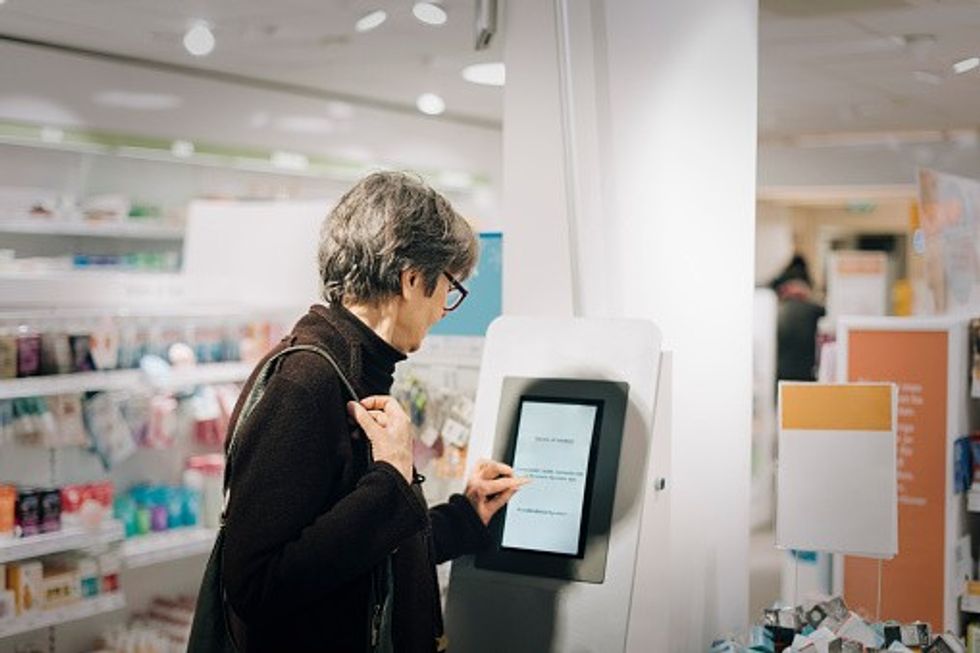Sector needs a remuneration model that ensures pharmacies are not just delivering Pharmacy First service, but thriving while doing so
Pharmacy First has demonstrated the enormous value of community pharmacy in providing accessible front-line care. However, pharmacists continue to face several challenges in delivering the service.
“Pharmacy First is a success, but it needs proper support to reach its full potential,” said Numark chairman Harry McQuillan.
In the first year alone, community pharmacies in England delivered an incredible 2 million consultations, highlighting the vital role pharmacists and their teams play in supporting the NHS.
“This significant number shows the high demand for accessible healthcare and the trust patients place in their local pharmacy teams. It’s clear that when empowered, community pharmacy delivers,” McQuillan told Pharmacy Business.
Key challenges in providing the service
While Numark members have embraced Pharmacy First, McQuillan pointed out several challenges that persist:
“Workforce capacity continues to be a concern, with patient demand sometimes outpacing available resources.
“The administrative burden, particularly around IT interoperability, data capture, and reimbursement processes, adds complexity.”
“Additionally, some geographical areas are still struggling with public awareness, meaning more work is needed to ensure patients understand when and how they can access Pharmacy First.”
Lessons learned over the past year
One key lesson is that “when community pharmacy is empowered, it delivers,” McQuillan said.
Pharmacy First has proven that pharmacists can effectively manage common clinical conditions and free up GP capacity.
However, McQuillan stressed the need for greater investment in workforce and digital solutions to scale the service and “clearer patient pathways and a more joined-up approach across primary care” to ensure pharmacists can work at the top of their clinical skillset.
Appropriate remuneration is essential
Although Pharmacy First represents a positive shift in recognising the clinical role of pharmacists, concerns remain about whether funding levels are sufficient to make the service sustainable long-term.
McQuillan stated that the current reimbursement model does not “fully reflect the time, expertise, and infrastructure required to deliver high-quality consultations” for many contractors.
“Future funding must ensure that pharmacies are not just delivering the service but thriving while doing so,” he noted.
According to him, one way to achieve this is by designing a remuneration model that ensures “the entire funding allocated for the Pharmacy First service flows to the network."
“Community pharmacy has the clinical expertise to do more, and to unlock its full potential, appropriate remuneration is essential,” McQuillan reiterated.
“Funding must reflect the complexity of consultations and ensure that pharmacies are incentivised to continue delivering and expanding this vital service,” he added.
Enhancing the service: Improvements needed
To strengthen Pharmacy First, McQuillan has recommended several key improvements:
- Streamlined digital integration between pharmacy and GP systems to reduce duplication and ensure seamless referrals and record-keeping.
- Sustainable funding to properly resource the service for the long term.
- Expansion of conditions and treatments available through Pharmacy First, enabling pharmacists to manage more patients without the need for GP intervention.
- A coordinated national public awareness campaign to ensure people know they can turn to their local pharmacy for expert advice and treatment
Drawing from his experience in Scotland, McQuillan emphasised that the best marketing campaign is for the community pharmacy network to engage with the service and deliver an experience that encourages patients to return the next time they have symptoms of a common clinical condition.
Numark’s key asks for policymakers
To improve the Pharmacy First scheme going forward, Numark has called on policymakers to:
- Increase investment in digital interoperability to ensure pharmacy teams can seamlessly share and access patient information.
- Review funding models to fairly reflect the workload and professional expertise involved and delivers the intended full value to the network.
- Expand the range of conditions that can be treated under Pharmacy First
- Implement a citizen-led approach, making the service accessible to all without requiring referrals from other healthcare professionals.
McQuillan believes that greater public awareness campaigns, backed by government, would drive more appropriate use of the service, further reducing NHS pressures.










 Health Secretary Wes Streeting addresses Pharmacy Conference via video
Health Secretary Wes Streeting addresses Pharmacy Conference via video  David Webb, chief pharmaceutical officer of NHS England
David Webb, chief pharmaceutical officer of NHS England Shailesh Solanki, executive editor of Pharmacy Business
Shailesh Solanki, executive editor of Pharmacy Business L-R: Yasmin Karsan, Pritee Panchmatia and Fin McCaul
L-R: Yasmin Karsan, Pritee Panchmatia and Fin McCaul  L-R: Baba Akomolafe, Rachna Chhatralia, Patricia Tigenoah-Ojo and Raj Matharu
L-R: Baba Akomolafe, Rachna Chhatralia, Patricia Tigenoah-Ojo and Raj Matharu L- R: Nicola Stockmann, Robert Townsend, Atul Patel and Amerjit Singh
L- R: Nicola Stockmann, Robert Townsend, Atul Patel and Amerjit Singh Wole Ososami, lead pharmacist at Westbury Chemist
Wole Ososami, lead pharmacist at Westbury Chemist








 A woman using kiosk at pharmacy store gettyimages
A woman using kiosk at pharmacy store gettyimages  Pharmacist examining commissioning machine in pharmacy gettyimages
Pharmacist examining commissioning machine in pharmacy gettyimages